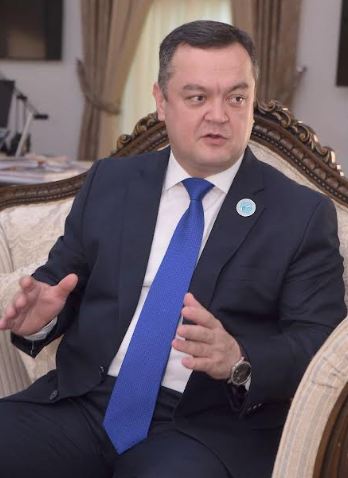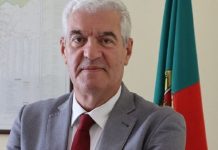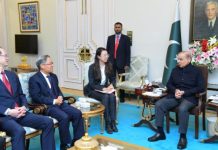In an exclusive conversation with Islamabad POST, Centreline magazine, and DNA News Agency, the Ambassador of Uzbekistan to Pakistan, His Excellency Alisher Tuktaev, shared valuable insights into the strengthening relationship between Pakistan and Uzbekistan. Here is the first part of his interview.
Exclusive
Ansar Mahmood Bhatti
ISLAMABAD: Reflecting on the recent visit of Prime Minister Muhammad Shehbaz Sharif to Uzbekistan, Ambassador Tuktaev hailed it as a significant step in enhancing bilateral relations. “The visit marked an important milestone in the development of our strategic partnership,” he said. According to the Ambassador, the relations between Uzbekistan and Pakistan are currently on a positive trajectory, with notable advancements in political dialogue, economic collaboration, and people-to-people ties.
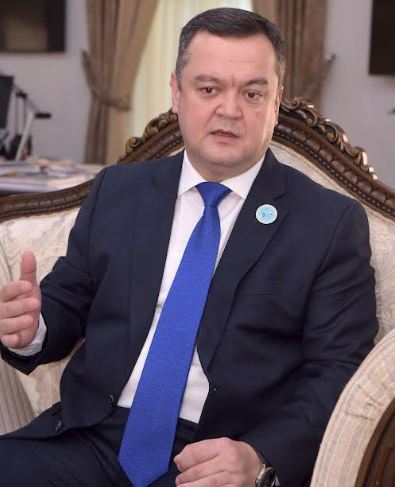
Key achievements include progress in trade and transport sectors, particularly the ambitious goal to increase bilateral trade to $2 billion and the advancement of the Uzbekistan-Afghanistan-Pakistan railway project. The visit also highlighted mutual interests in strengthening cooperation in agriculture, tourism, investment, and cultural exchanges.
Discussing the trade target of $2 billion, Ambassador Tuktaev emphasized the practical measures being taken to reach this milestone. “This is an ambitious yet realistic goal,” he said. To achieve this, the Uzbekistan-Pakistan Joint Intergovernmental Commission on Trade and Economic Cooperation has ramped up its efforts. Business-to-business interaction is being promoted through trade forums, exhibitions, and delegation visits.
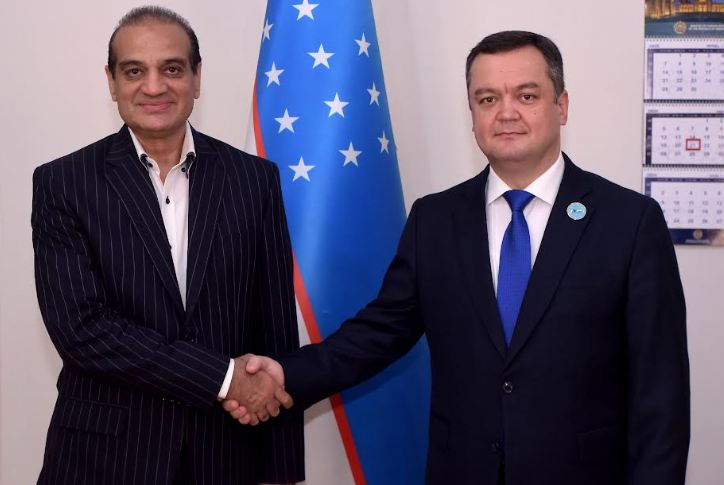
The sectors expected to lead this surge include textiles, light industry, pharmaceuticals, agro-processing, construction materials, chemicals, IT, and communications. There is also a concerted push to resolve logistical challenges, expand the Preferential Trade Agreement, and simplify customs procedures.
Furthermore, new avenues of cooperation are emerging in energy, mechanical engineering, and mining, all of which will be underpinned by strong political will and growing business interest on both sides.
One of the most transformative projects discussed during the Prime Minister’s visit was the Uzbekistan-Afghanistan-Pakistan railway. Ambassador Tuktaev called it a “strategic initiative” that could reshape regional connectivity by providing the shortest and most economical route from Central Asia to the Arabian Sea.
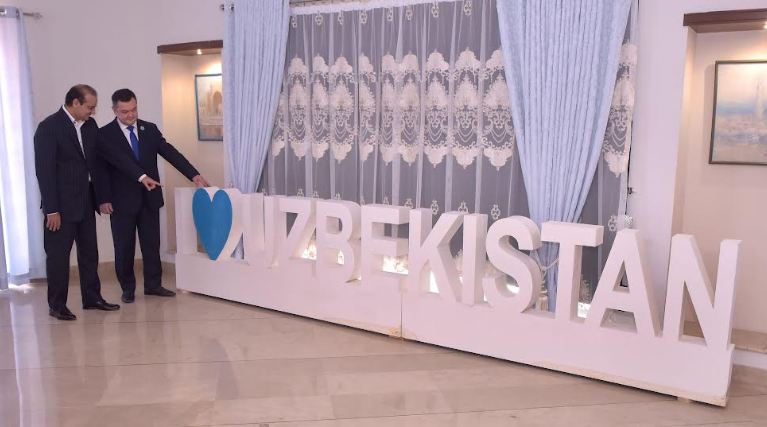
Currently, the project is in the technical planning and preparation phase. A trilateral roadmap has been signed, and a feasibility study is underway, with support being sought from international financial institutions. The 760-kilometer railway is expected to cut cargo delivery times from Tashkent to Pakistani ports from over 30 days to just 10–12 days and reduce costs by up to 35%.
“This is more than just an infrastructure project,” said the Ambassador. “It is a symbol of regional connectivity, pragmatic cooperation, and a shared commitment to a peaceful future.”
Beyond economic and political collaboration, cultural and educational initiatives are gaining momentum. Ambassador Tuktaev underscored the deep historical and spiritual connections between the two nations, highlighting the legacies of figures like Imam al-Bukhari, Imam al-Tirmidhi, Al-Biruni, and Babur.
New initiatives include expanding academic exchanges, creating joint educational programs, and establishing university partnerships. Plans are also in motion for reciprocal university branches, cultural centers, art exhibitions, and student exchange programs.
“We are promoting the study of Uzbek and Urdu languages, and launching youth dialogues and forums,” he noted. Joint projects in Islamic education and historical research further cement the cultural alliance between the two countries.
Ambassador Tuktaev acknowledged the complex regional security landscape, particularly in the context of Afghanistan. He reaffirmed Uzbekistan’s commitment to close coordination with Pakistan in areas like counterterrorism, drug trafficking, and cybersecurity.
“Our countries already share a history of positive collaboration in defense and security,” he stated, adding that new legal frameworks are being developed to bolster these ties. Joint training, capacity building, and information sharing are central to this cooperation.
Uzbekistan maintains a policy of non-alignment but strongly advocates for regional dialogue, political conflict resolution, and trust-building. Within forums such as the UN, SCO, OIC, and ECO, both nations continue to work together to promote peace and stability across South and Central Asia.
Ambassador Tuktaev highlighted Uzbekistan’s position as one of Central Asia’s most dynamic economies and a welcoming destination for Pakistani investors. He pointed out that Uzbekistan has introduced wide-ranging reforms to liberalize its investment climate, including currency policy reforms, investor protections, and simplified business procedures via a “Single Window” system.
Key sectors for Pakistani investment include textiles, food processing, pharmaceuticals, construction, logistics, and tourism. Uzbekistan’s Free Economic Zones – including Navoi, Angren, and Jizzakh – offer further incentives for joint ventures and industrial development.
Joint projects are already underway in pharmaceuticals, textiles, and agriculture. “We actively support direct B2B engagements through forums, exhibitions, and delegation exchanges,” said the Ambassador. The Embassy of Uzbekistan in Islamabad is committed to providing full support to Pakistani investors, from project planning to execution.
Ambassador Alisher Tuktaev said “With our shared vision, geographic proximity, historical ties, and mutual trust, the future of Pakistan-Uzbekistan relations is very bright.”
The multifaceted cooperation – spanning politics, trade, connectivity, culture, security, and education – reflects a comprehensive and forward-looking partnership. Both nations are poised to benefit from deeper ties, and as the Ambassador aptly stated, “We are stronger together.”

